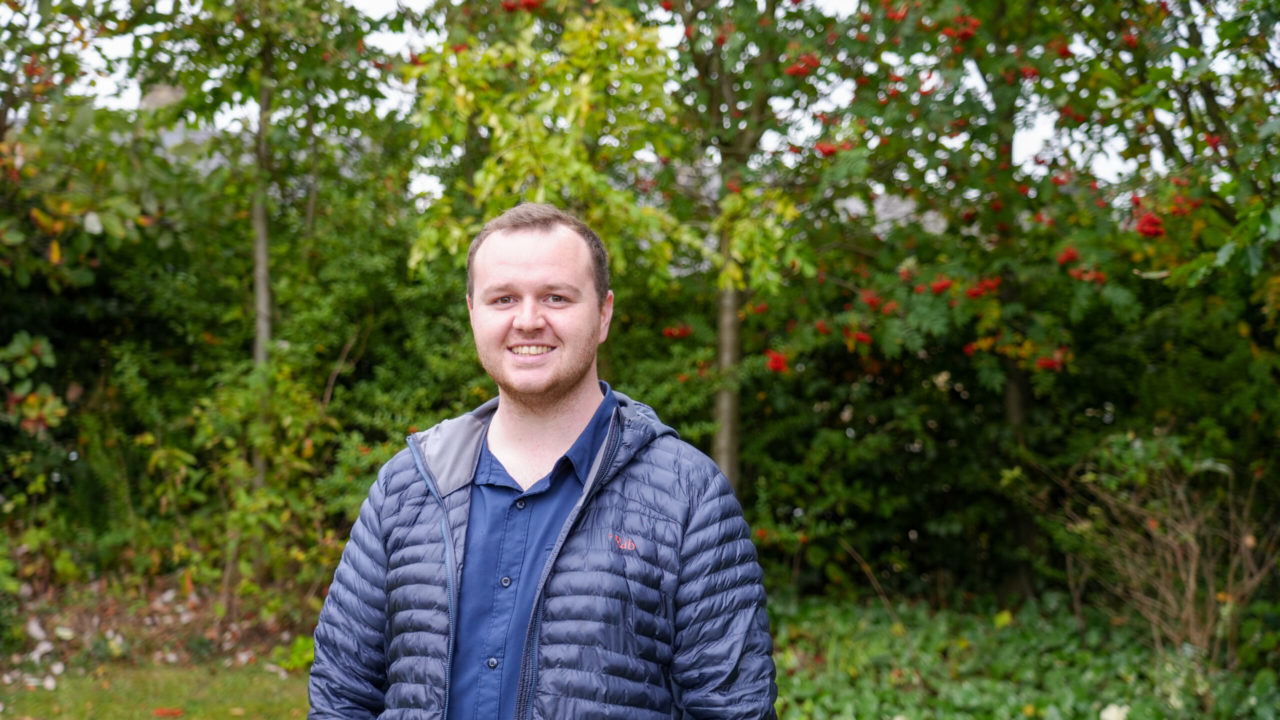
Whitcher Wildlife, founded in 1998 by Derek Whitcher, began life as a consultancy focused on badgers and water voles. Over the years, the company has evolved into a fully-fledged ecological consultancy, reflecting the increasing complexity and importance of ecology in today’s world.
Derek ran the company for decades and, even aged 77, remains active in the business. But he stepped back a few years ago prompting current directors, Mitch Greenhalgh and Ruth Georgiou, to propose a staff buyout. Mitch and Ruth took over leadership of the company in July 2022.
Ensuring development happens in the least harmful way to wildlife
Whitcher Wildlife offers a wide range of ecological consultancy services. The primary concern is to ensure clients are compliant with current wildlife legislation. A large proportion of projects are for railways, assessing the potential impact on species.
Mitch explains,
“Whenever the railways carry out work such as vegetation clearance or repairing bridges, they’ll bring us in. We do a site survey to ensure there are no protected species issues. If we do find something, we advise on ways to mitigate any ecological damage. It ensures that development projects can go ahead without violating wildlife laws.”
Along with railway projects, Whitcher Wildlife also works with other sectors. These include quarries, councils, building contractors, and residential properties across the UK. Many residential projects are for bat surveys, often required before planning permission is granted. Because bats are a protected species, homeowners need to know whether they’re in the property before starting major works. Mitch notes that it’s often an unseen side of planning that homeowners are not expecting.
Whitcher Wildlife also handles preliminary ecological appraisals for landowners looking to develop properties.
“Current legislation requires new developments to have a biodiversity net gain,” says Mitch. “It means guaranteeing a 10% increase in biodiversity compared to pre-development levels. We advise on the best way of getting that into their development. It could be through wildflower lawns, hedgerows, or tree planting. What suits one will be different for another. In theory, it’s easy to promise the world and not do anything once planning has been granted. So, as part of the legislation, there’s a legally binding agreement for 30 years after completion of the works.”
Moving into The Business Village gives the company space for growth
In Easter 2024, Whitcher Wildlife moved into The Business Village in Cudworth. Their previous office, annexed to Derek’s bungalow, was no longer suitable due to space constraints. But Mitch and Ruth also wanted to give Derek the space to step back and retire.
The move means they now have room for the company to grow. But it also gives a separate area with sofa and bookshelves to allow staff to take a proper break from work.
“We liked the idea of managed premises, with daily cleaning and amenities close by. It’s a perfect location, central for all our staff, and with free parking. It’s a comfortable, modern space for us to bring people to for meetings. The reception team are fantastic, especially answering phones or dealing with packages. It takes away a lot of pressure, meaning we can get on with running the company.”
Whitcher Wildlife has also extended its expertise to The Business Village. While enjoying lunch one day, Ruth noted the diversity of plant species in the grassland around the offices. Shortly afterwards, the grass was mown, losing the flowers and insects. Mitch contacted the management team to suggest a relaxed mowing regime.
“We understood it needed to be a functional area for people to eat their lunch. But leaving certain areas to grow longer could promote greater biodiversity. That’s happened now, and the area looks fantastic. We’ve even used it to do some botany training because it has over 30 species in there. It’s such a good and simple fix – if anything, it’s cheaper because you’re doing less work.”
Whitcher Wildlife’s vision for growth and sustainability
Looking ahead, Whitcher Wildlife aims to continue its trajectory of sustainable growth. The company has grown from nine staff members in 2022, to an anticipated 18-20 by the end of 2024, but Mitch and Ruth are keen to manage this growth responsibly.
“It’s a side of business many people don’t talk about,” says Mitch. Increasing our employee numbers is brilliant. It means extra income and extra ability to do more jobs. But it also comes with additional responsibility and risk. We want to make sure we have the capability to look after our employees.”
Mitch also shares their vision to open new offices in a different part of the country.
“Barnsley is a fantastic location. It’s central to everywhere else and only 15 minutes away from the motorway network. But we do get a lot of work in certain places so it would be nice to open offices elsewhere one day.”
The team at Whitcher Wildlife are driven by a deep love for nature. Their work ensures that development and progress is not at the expense of our natural habitats.
As Mitch says,
“We love wildlife and nature. It’s not always a nice job and there are compromises between what people want and what legislation says. In an ideal world, nobody would ever touch an area of natural habitat. But life doesn’t work that way. Things happen in the name of progress. Houses and roads get built, and infrastructure works happen. Somebody needs to ensure these things can happen, but in the least harmful way to nature. That’s what Whitcher Wildlife does.”
Contact Whitcher Wildlife
Website: https://www.whitcher-wildlife.co.uk
Email: info@whitcher-wildlife.co.uk